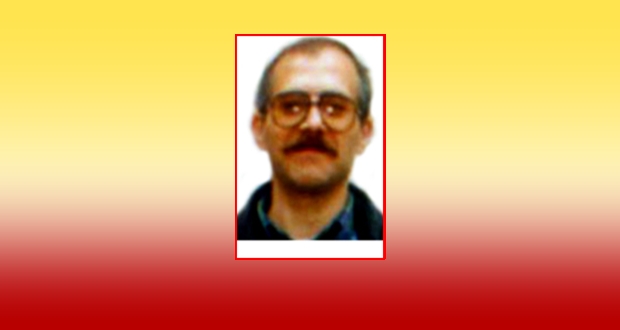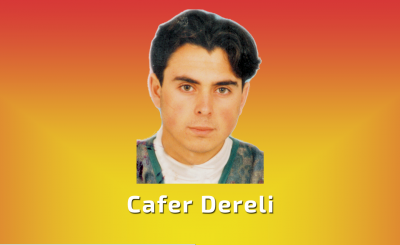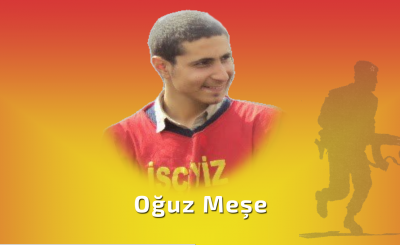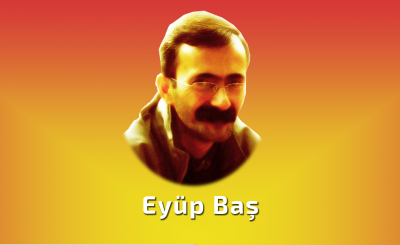BÜLENT PAK (SINAN)
The deputy commander was born in 1958 in Eskisehir and was of Turkish nationality. Because his father was a soldier he spent his youth in various places. As a secondary school pupil he made a living working on building sites as an electrician and in electrical goods shops.
We can say that the history of the Party-Front and the history of Bülent were the same. In 1974 he began studying. In the same year, after the execution at Kizildere, the years began in which the ideology and politics of the THKP-C came under every conceivable form of attack, and every attempt was made to wipe out its history. Against open and concealed enemies the young militants, who wanted to carry on the legacy of the Party-Front in every place they found themselves, began to take steps to organise the Party-Front.
The embryo of our current movement, the Kurtulus (Liberation) group, was born in these years. Bülent, one of those responsible for the Academy of Architects and Engineers and the city district of Besiktas, took his place in this activity.
When there were attacks by civil fascists against youth and the inhabitants of shantytowns he was always at the forefront of efforts to repel them. In the Dev Genc phase after 1974 and in defence and organising to counter fascist attacks in Besiktas, Bülent played an important role. When the Devrimci Yol renegades came out into the open in 1978, Bülent played an active role in fighting them. He was one of those who took part in the meeting where Devrimci Sol was founded.
He was one of the leading cadres of Dev Genc and also took on tasks as a fighter in the “Units to Counter Fascist Terror”, and he showed special energy in this. We can find the traces of his activity in dozens of clashes in the Besiktas area involving Dev Genc. Because of people like Bülent the fascists were never able to get the upper hand in the schools and streets of Besiktas. They did not spread their influence in the area, they could not engage in repression and no fascist strongpoints remained. Dev Genc became a nightmare for the fascists.
Bülent took up the long-term campaign of struggle by Devrimci Sol after the September 12, 1980 military coup, with the slogan “the junta cannot force 45 million people to surrender”, as a leader of the masses, a fighter and a creative person in every situation. His efforts and activity showed themselves in many
small and large operations against the enemy. The remote-control bombs used against the cars of the torturers in Fulya Deresi in Besiktas were his contribution.
The enemy still remembers them. When we suffered defeats, we kept on fighting. Bülent was one of those who kept on fighting. He became a prisoner but continued to fight. Captivity was not the end of the struggle. He was well to the front in any resistance. He was one of the volunteers in the second Death Fast team in 1984.
HE WAS A MASTER OF CREATIVITY.
The dream of freedom for every prisoner combined with the inclination to struggle developed into an unquenchable passion. Bülent was one of those who lived their life gripped by this passion. And this
passion, combined with creativity, showed itself in the “freedom actions” of which he was one of the architects and which amazed even the enemy.
The organisation of freedom actions from the cells of Ankara and Buca, whether known or unknown, cannot be discussed in terms of leading roles and creativity. Bülent became a legend in this sphere. To his mind, there were no obstacles that could not be overcome. Without wanting anything for himself he spent no day without a rope around his neck without fighting with great energy for the freedom of his comrades.
After his imprisonment ended, he was again in the thick of battle. “When I am separated from our movement for a day I feel like an orphan,” he said. The movement was everything for him. He did not have such a strong attachment even to his family. 1990 was the beginning of our surge. As a part of this, he was one of the first cadres who worked at our Middle East camp to develop city and rural guerrillas.
With a limited number of people it was planned to simultaneously build the camp and start using it for instruction. Bülent made the camp ready in three months together with some friends so it could be used for training, by working day and night, despite some who said it would not be ready in a year. He was one of the instructors in the camp. In July 1991 he returned to Turkey with a quantity of weapons and equipment and was again arrested.
After a short period of imprisonment, in 1992 he took up the task of organising guerrillas in the mountains of the Aegean. In 1993 he was arrested in the Aegean. The war went on. In the existence of a revolutionary there is no tiredness or exhaustion. They never accepted imprisonment as fate.
On July 17, 1995 he escaped together with three friends, the prison walls of Buca opening into the mountains of Sivas. When he died under the command of Ali Haydar, he had fought at every point of the Party-Front’s history. Even when he showed shortcomings, he knew that with persistence one could get back on one’s feet, and filled his whole revolutionary life with the struggle and left his history and personality as a legacy.




